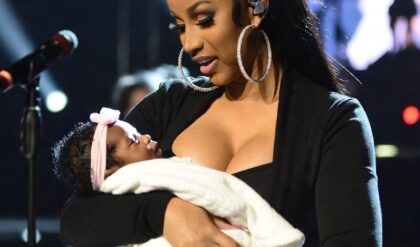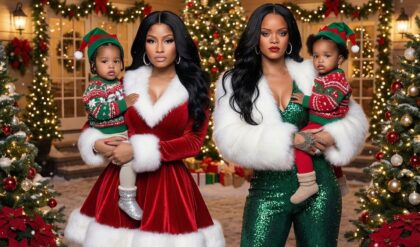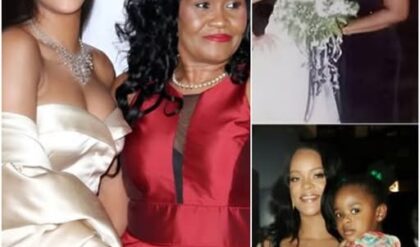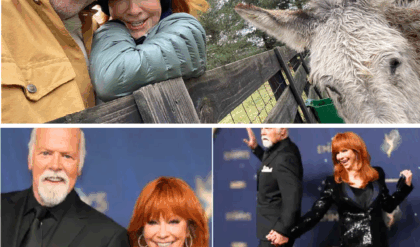HBO’s new prequel to Game of Thrones, House of the Dragon, reached the largest series premier numbers in HBO’s history. The ambitious and well executed return of George R.R. Martin’s Westeros to the small screen was showered with praise by both critics and fans, 10 million of whom tuned in, per HBO. House of the Dragon follows the story of the Targaryen dynasty, a fair skinned, white haired race of incestuous aristocrats whose dragons, superior technology, and fiercely guarded noble bloodlines give them the power to rule the Seven Kingdoms with an iron fist.
The history of the Targaryen dynasty, it bears repeating, is fraught with violence, the subjugation of “lesser” people, and an obsession with pure bloodlines that ends up being their undoing. So it was puzzling at best that the showrunners decided to populate the Targaryen family with a racially diverse cast, including Steve Toussaint, the Black British-Caribbean actor, who plays Lord Corlys Velaryon.
“The world is very different now than it was 10 years ago when [Game of Thrones] all started,” showrunner Ryan Condal told EW. “It’s different than 20 years ago when Peter Jackson made The Lord of the Rings. These types of stories need to be more inclusive than they traditionally have been. It was very important for [us] to create a show that was not another bunch of white people on the screen, just to put it very bluntly.”
He’s right, of course: The time has passed when you could get away with an all white cast—something I’m personally grateful for, as someone who grew up with all too few characters who look like me in the fantasy and sci-fi genres I love.
And yet, portraying the Targaryen dynasty as a rainbow coalition of racially-mixed characters undermines key aspects of the plot, like the severity of their hubris and their long history of despotism, colonization, and subjugation of “lesser people.”
It’s an object lesson in how not to do diversity casting, which has to be done right. If not, it’s just as insulting as no diversity at all—perhaps more so. Forced and haphazard casting that changes character nuances and motivations as well as entire plot lines beyond recognition undermines both actor and viewer.
Doing diversity casting right means using it to enhance a work of fiction, rather than weaken its entire premise. Failing to do this right reduces Black actors to their skin color, rather than allowing them to inhabit a character that makes sense in its entirety.
HBO’s new prequel to Game of Thrones, House of the Dragon, reached the largest series premier numbers in HBO’s history. The ambitious and well executed return of George R.R. Martin’s Westeros to the small screen was showered with praise by both critics and fans, 10 million of whom tuned in, per HBO. House of the Dragon follows the story of the Targaryen dynasty, a fair skinned, white haired race of incestuous aristocrats whose dragons, superior technology, and fiercely guarded noble bloodlines give them the power to rule the Seven Kingdoms with an iron fist.
The history of the Targaryen dynasty, it bears repeating, is fraught with violence, the subjugation of “lesser” people, and an obsession with pure bloodlines that ends up being their undoing. So it was puzzling at best that the showrunners decided to populate the Targaryen family with a racially diverse cast, including Steve Toussaint, the Black British-Caribbean actor, who plays Lord Corlys Velaryon.
“The world is very different now than it was 10 years ago when [Game of Thrones] all started,” showrunner Ryan Condal told EW. “It’s different than 20 years ago when Peter Jackson made The Lord of the Rings. These types of stories need to be more inclusive than they traditionally have been. It was very important for [us] to create a show that was not another bunch of white people on the screen, just to put it very bluntly.”
He’s right, of course: The time has passed when you could get away with an all white cast—something I’m personally grateful for, as someone who grew up with all too few characters who look like me in the fantasy and sci-fi genres I love.
And yet, portraying the Targaryen dynasty as a rainbow coalition of racially-mixed characters undermines key aspects of the plot, like the severity of their hubris and their long history of despotism, colonization, and subjugation of “lesser people.”
It’s an object lesson in how not to do diversity casting, which has to be done right. If not, it’s just as insulting as no diversity at all—perhaps more so. Forced and haphazard casting that changes character nuances and motivations as well as entire plot lines beyond recognition undermines both actor and viewer.
Doing diversity casting right means using it to enhance a work of fiction, rather than weaken its entire premise. Failing to do this right reduces Black actors to their skin color, rather than allowing them to inhabit a character that makes sense in its entirety.
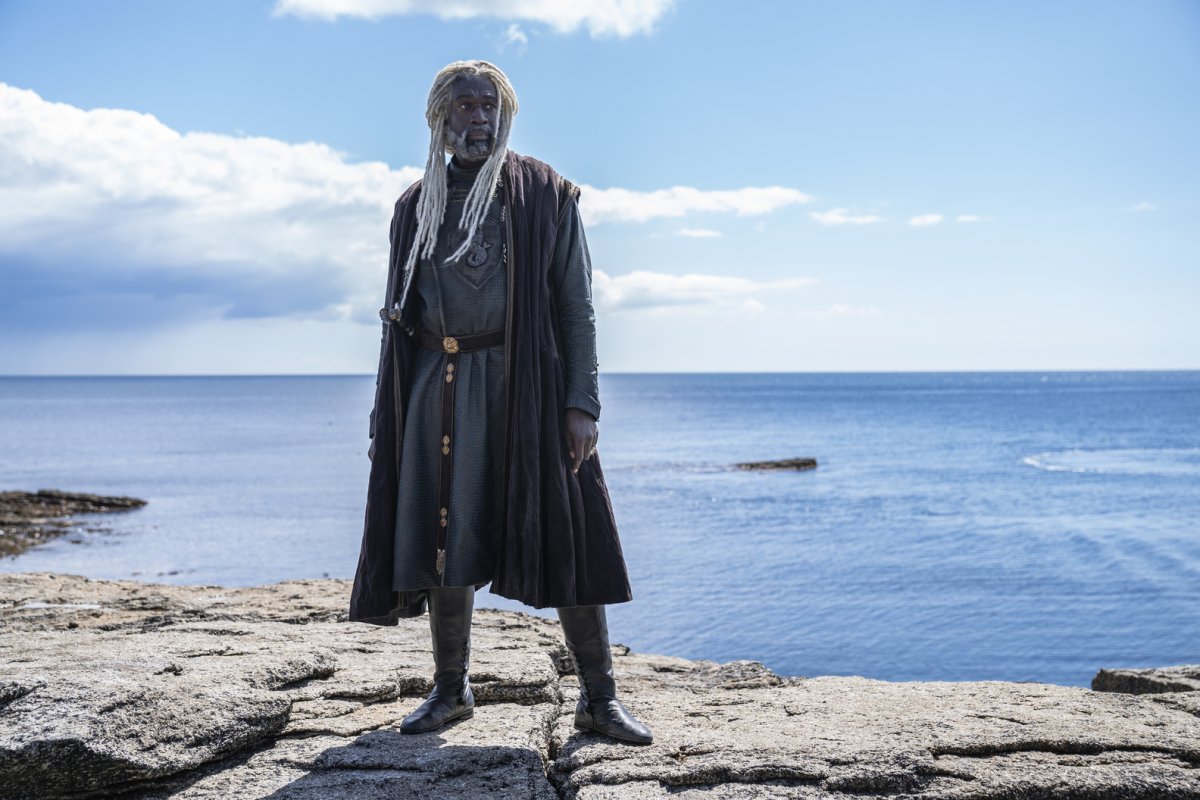
But all too often, Black actors are cast in established franchises in a lazy way that tokenizes them for their race with no respect or credence paid to the subtext and historical and symbolic dimensions of the story.
Take for example the 2021 British TV drama Anne Boleyn, which received tremendous backlash for the purely “diversity”-driven choice to cast a Black actress, Jodie Turner-Smith, in the role of one of Europe’s most famous monarchs. As in the case of House of the Dragon, the decision was defended on the merits of “identity-conscious casting.” According to the showrunner, identity-conscious casting “makes space for and embraces how actors and artists can bring their whole identities or even parts of their identities to a character.”
But the truth is the exact opposite: When you’re undermining a piece of history by casting a Black actor, you’re making their race an inaccessible part of their character and their acting. After all, how free can a Black actor be when they are slotted into a role that was not intended for them? How much of the historical weight of a story is impacted by this “race-conscious” approach to storytelling, which ends up obfuscating the connotations and impact of race and power?
It’s unnecessary at best. There exists a host of available stories that showcase Black lives through history and mythology, from Shakespeare’s Othello to the story of England’s first Black aristocrat, Dido Elizabeth Bell, to the slave rebellion leader Toussaint L’Ouverture. And yet, instead of creating great TV around these incredible stories, we get a lazy and desperate push to haphazardly insert people of color into traditionally European roles while dismissing those who take issue with these diversity casting choices as racist.
Haphazard diversity casting ends up objectifying Black actors, exposing them to needless backlash and hostility from confused and frustrated fans and disconnecting their race from their acting and characters.
But the clumsiness of bad diversity casting also exposes something dark about the audiences for these prestige TV dramas. In the cast of House of the Dragon, the message is clear: Your average woke, Hollywood liberal can still root for a ruling class portrayed as malignant despots, so long as they aren’t all white.
It’s a key feature of pop-wokeness: making it seem counter-cultural to side with the elite. Shonda Rhimes’ hit Netflix show Bridgerton is another famous and recent example that features a diverse, rainbow cast of fawning aristocrats, despite being set in the Georgian period, the height of the trans-Atlantic slave trade. These desperate attempts to foster diversity blur the lines between aspirational fantasy and historical anachronism, which makes it hard to decipher how much of the impact of a story is lost when modern preoccupations with diversity and inclusion collide with unpleasant historical, mythological and symbolic truths.
Diversity casting in deeply hierarchical narratives reveals how comfortable we are with hierarchy, aristocracy, and even incestuous Aryan-like racists—so long as it’s white servants waiting on Black queens and nobles, and so long as the eugenicist Aryans aren’t all white.
It’s a shame that showrunners aren’t challenging these classist assumptions but catering to them with their own racialized decisions, which undermine Black actors and acting as well as viewers. And it’s especially dispiriting because diversity that makes sense is not hard to find and can add incredible texture and richness to a story.
The previous incarnation of HBO’s Game of Thrones was one such example. It managed to stay true to the source material during the earlier seasons while still showcasing stellar portrayals of Black characters who hail from the places in George R. R. Martin’s universe where dark-skinned people exist. Fan favorites like the foul mouthed pirate Salador San, played by Black British-Tanzanian actor Lucian Msamati, and the confidante of Queen Daenerys, Missandei, played by British-Dominican Actress Nathalie Emmanuel, were both beloved characters in the original series, and their presence on the show didn’t feel forced or out of place.
The challenges with diversity casting reflect the systemic problems and glaring lack of ambition and imagination in Hollywood. It’s much easier for the highly-profit driven industry to slot token Black actors into already existing franchises that are guaranteed success, and much harder to take risks and tell new stories that feature prominent Black characters and myths and that showcase the full scope of the imagination and talent of people of color.
It is possible and important to do diversity properly. But it’s also fine sometimes not to do it at all, especially when the occasion does not call for diversity casting and when the choice to do so impacts the subtext and symbolic dimension of a narrative.
Diversity casting out of some warped sense of moral obligation diminishes the impact of a project and also diminishes the dignity of the actors who are being slotted into shoes that were not tailored for them.

